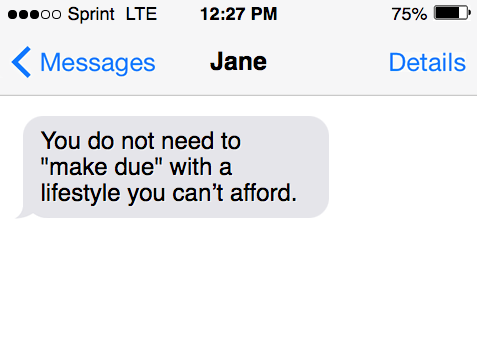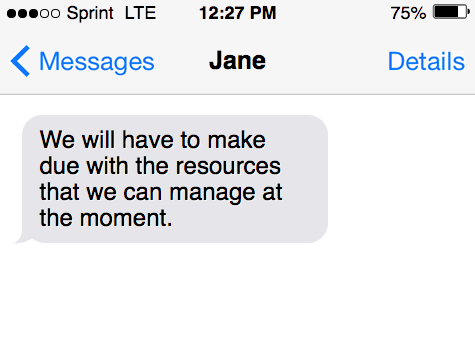Is it to “make due” or “make do?” It can be confusing to comprehend the key differences between these words. Phrases can be intercepted or understood in several ways depending on the circumstances or the specified way the words are placed.
Learn about the difference when using the phrases “make do” or “make due.”

Is it “make due” or “make do”?
Modern English states that both the idioms “make due” and “make do” mean the same thing.
“Make due” is an idiom which is most commonly used in English literature written before the late-twentieth century.
In Modern English, “make do” is more commonly used.
Where does “make due” originate?
“Make due” is an idiom that was made use of rather frequently in Medieval English literature. Why was it used? It was used to justify an act out of the line of direct operation.
Or, a counter prepared to object to the problem refers to why the means of a task are altered.
“Make due” is an adjective rather than a verb that restricts the use of the idiom in the language.
Merriam-Webster now refers to “make due” as incorrect grammar and is rephrased to a more suitable idiom, “make do.”
- Make due with the clothes you have on right now. We can buy some more the next time.
- Make do with the clothes you have on right now. We can buy some more the next time.
Examples of “make due” in sentences
- You do not need to “make due” with a lifestyle you can’t afford.
- If you do not want to buy more supplies, you must make due with whatever you have left.
- Students who want to progress forward in their lives will make due with what they already have.
- Those who do not fit the prioritized category make due with what they can get.
- We will have to make due with the resources that we can manage at the moment.
Synonyms of “make due”
Any word, phrase, or idiom used to justify a situation or objectify its course can be made a proper enough synonym to “make due.”
Some common words that can be used in its place are as follows:
For example, manage the clothes that you already have on.
“Manage” can get used synonymously to “make due.” We can replace any synonym for “make due.” For example, “I will have to improvise with what I have.”
The entire sentence means “for certain circumstances; the individual does not have clothes other than what he already has on for the time being.”

What does “make do” mean?
“Make do” means the same as “make due.”
Both idioms are synonymous with each other.
It’s more common to say “make do” rather than “make due.” When writing American English, use “make do.”
Sources
Fact checked:
Content is rigorously reviewed by a team of qualified and experienced fact checkers. Fact checkers review articles for factual accuracy, relevance, and timeliness. Learn more.
Core lessons
Glossary
- Abstract Noun
- Accusative Case
- Anecdote
- Antonym
- Active Sentence
- Adverb
- Adjective
- Allegory
- Alliteration
- Adjective Clause
- Adjective Phrase
- Ampersand
- Anastrophe
- Adverbial Clause
- Appositive Phrase
- Clause
- Compound Adjective
- Complex Sentence
- Compound Words
- Compound Predicate
- Common Noun
- Comparative Adjective
- Comparative and Superlative
- Compound Noun
- Compound Subject
- Compound Sentence
- Copular Verb
- Collective Noun
- Colloquialism
- Conciseness
- Consonance
- Conditional
- Concrete Noun
- Conjunction
- Conjugation
- Conditional Sentence
- Comma Splice
- Correlative Conjunction
- Coordinating Conjunction
- Coordinate Adjective
- Cumulative Adjective
- Dative Case
- Determiner
- Declarative Sentence
- Declarative Statement
- Direct Object Pronoun
- Direct Object
- Diction
- Diphthong
- Dangling Modifier
- Demonstrative Pronoun
- Demonstrative Adjective
- Direct Characterization
- Definite Article
- Doublespeak
- False Dilemma Fallacy
- Future Perfect Progressive
- Future Simple
- Future Perfect Continuous
- Future Perfect
- First Conditional
- Irregular Adjective
- Irregular Verb
- Imperative Sentence
- Indefinite Article
- Intransitive Verb
- Introductory Phrase
- Indefinite Pronoun
- Indirect Characterization
- Interrogative Sentence
- Intensive Pronoun
- Inanimate Object
- Indefinite Tense
- Infinitive Phrase
- Interjection
- Intensifier
- Infinitive
- Indicative Mood
- Participle
- Parallelism
- Prepositional Phrase
- Past Simple Tense
- Past Continuous Tense
- Past Perfect Tense
- Past Progressive Tense
- Present Simple Tense
- Present Perfect Tense
- Personal Pronoun
- Personification
- Persuasive Writing
- Parallel Structure
- Phrasal Verb
- Predicate Adjective
- Predicate Nominative
- Phonetic Language
- Plural Noun
- Punctuation
- Punctuation Marks
- Preposition
- Preposition of Place
- Parts of Speech
- Possessive Adjective
- Possessive Determiner
- Possessive Case
- Possessive Noun
- Proper Adjective
- Proper Noun
- Present Participle
- Prefix
- Predicate



